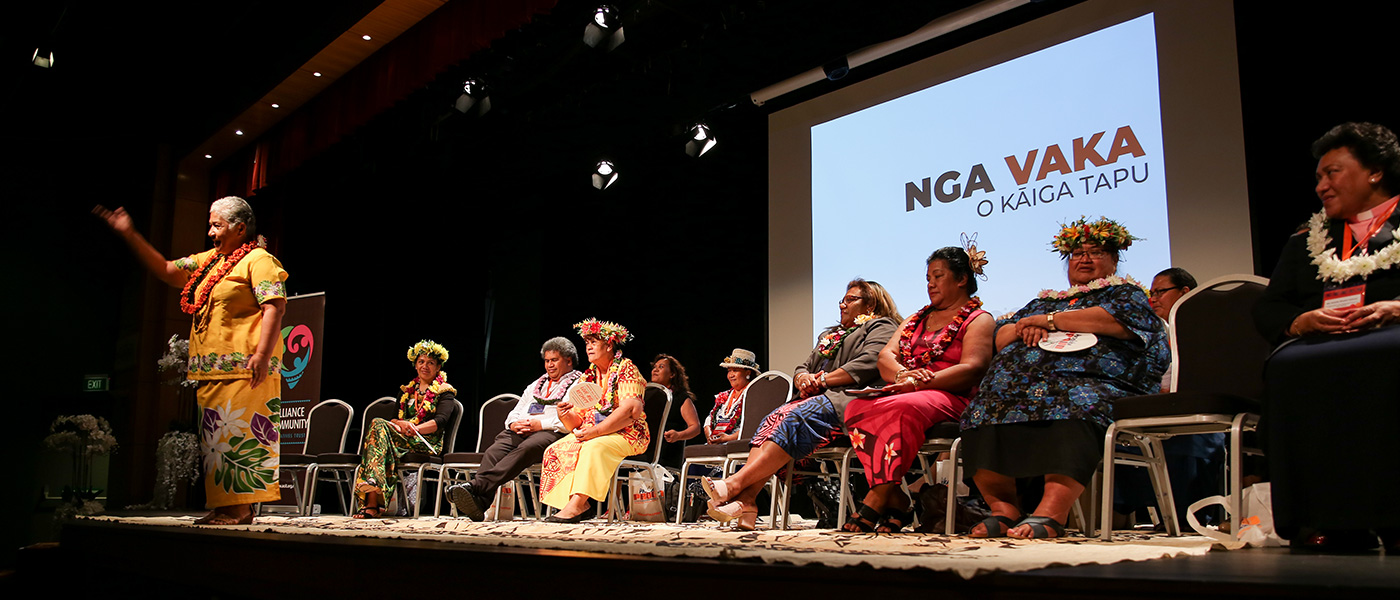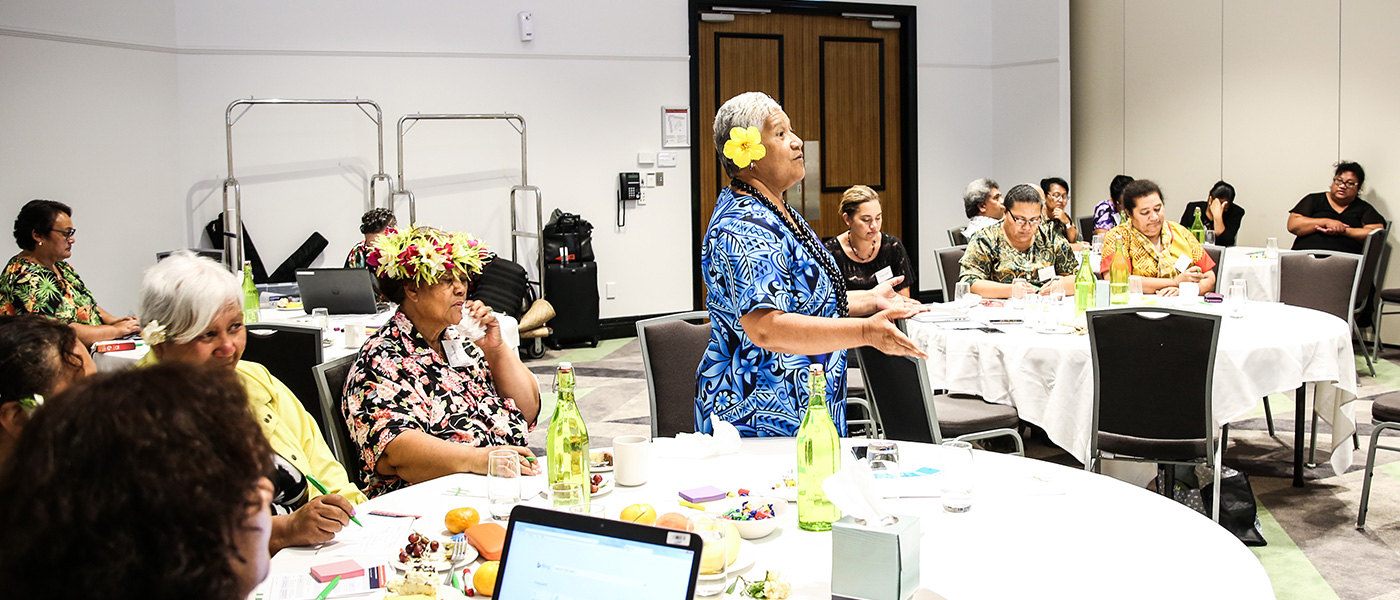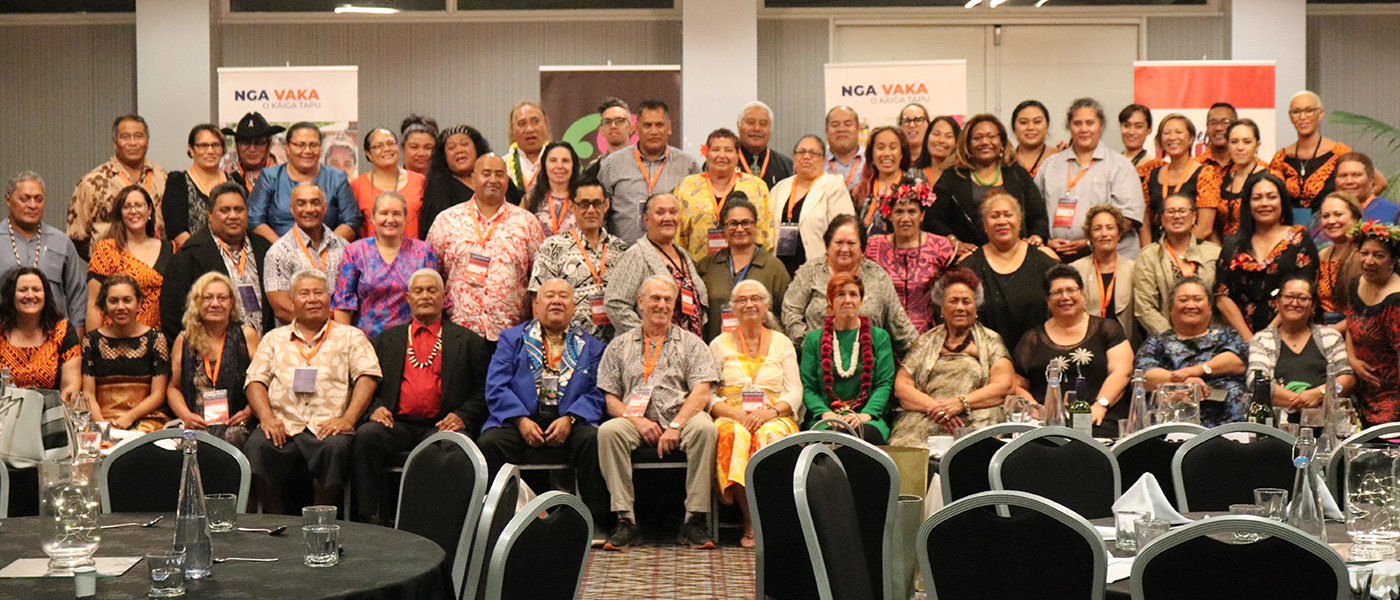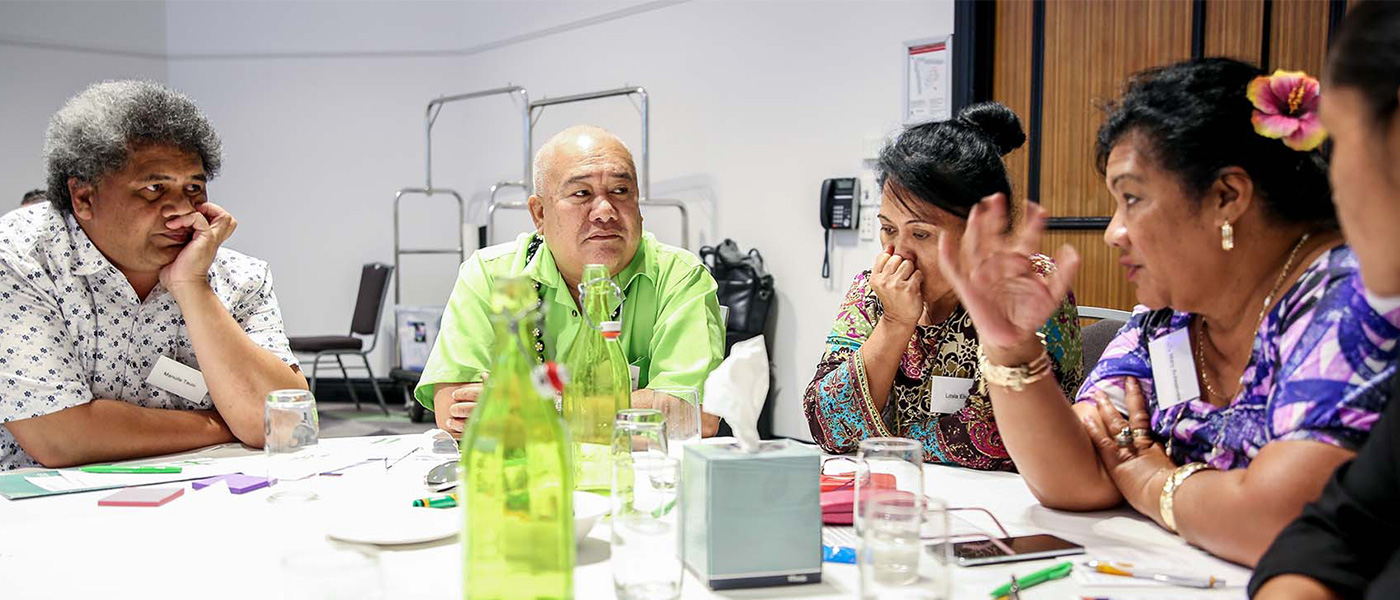Online Training
ABOUT THE ONLINE TRAINING
Nga Vaka’s online training programme helps learners gain insights into the theories which underpin cultural competency. Learners reflect on this theory as it applies to their practice and adjust their practice accordingly. This is to help them work effectively to reduce family violence across Pacific communities.
Participants need to complete the online training before attending the face-to-face workshops. The online training only needs to be done once. After completing the programme’s four learning modules, graduates can attend a range of face-to-face workshops delivered by the ethnic specific facilitators that delve deeper into the eight cultural frameworks.
Programme Structure
The programme includes an introductory section and four learning modules which enable participants to meet the learning outcomes for the programme. Each module contains learning activities, readings and other resources, and self-reflections.
INTRODUCTORY MODULE
Pacific migration journey to Aotearoa and the history of Nga Vaka o Kāiga Tapu. This introductory section sets the context for Nga Vaka o Kāiga Tapu’s training programme. It includes:
- A brief video about the migration journey of Pacific peoples to Aotearoa.
- The history of Nga Vaka o Kāiga Tapu as told by Cultural Lead, Fa’amatuainu Tino Pereira.
- A discussion forum where participants introduce themselves and get acquainted with their facilitator and fellow learners.

MODULE 1 - PACIFIC CONCEPTUAL FRAMEWORKS PART 1
In Module 1, participants are introduced to the first four Pacific conceptual frameworks from Tonga, Fiji, Niue and Tokelau. This will provide learners with an understanding of the core values and beliefs of each framework. Learners will have an opportunity to examine the uniqueness of each framework and explore its relevance to their practice.
The learning outcomes for Module 1 are that learners will:
-
1
Understand the basics of the Tongan, Fijian, Niuean and Tokelaun conceptual frameworks.
-
2
Explore the similarities and common values of the frameworks.
-
3
Understand the relevance of each framework to their practice.

MODULE 2 - PACIFIC CONCEPTUAL FRAMEWORKS PART 2
In Module 2, learners are introduced to the four other Pacific conceptual frameworks from Samoa, the Cook Islands, Kiribati and Tuvalu. This will provide learners with an understanding of the core values and beliefs of each framework. Learners are given an opportunity to examine the uniqueness of each framework and explore its relevance to their practice.
The learning outcomes for this Module 2 are that learners will:
-
1
Understand the basics of the Samoan, Cook islands, iKiribati and Tuvaluan conceptual frameworks.
-
2
Explore the similarities and common values of the frameworks.
-
3
Understand the relevance of each framework to their practice.

MODULE 3 - FAMILY VIOLENCE IN PACIFIC COMMUNITIES
In this module, learners will work through two case studies to understand Pacific family violence by exploring the causes of family violence among Pacific families. They’ll also explore the factors that contribute to family violence in NZ and the Pacific context.
The learning outcomes for Module 3 are that learners will:
-
1
Gain knowledge of family violence from a Pacific perspective.
-
2
Understand the causes of family violence within the Pacific context.
-
3
Understand the impact of family violence on Pacific families.

MODULE 4 - UNDERSTANDING FAMILY VIOLENCE LEGISLATION
In this final module, participants will watch a video with Family Law Barrister Maria Fuamatu and reflect on other ways that they can help Pacific peoples navigate legislation.
When learners complete the online training they will be able to:
-
1
Discuss a range of approaches for working with Pacific communities in Aotearoa New Zealand.
-
2
Select and apply strategies for communicating and working with a diverse range of Pacific peoples.
-
3
Understand the historical and cultural contexts of Pacific peoples and their impacts on family harm.
-
4
Discuss their work practices when engaging with Pacific peoples who are experiencing or perpetrating family harm.
